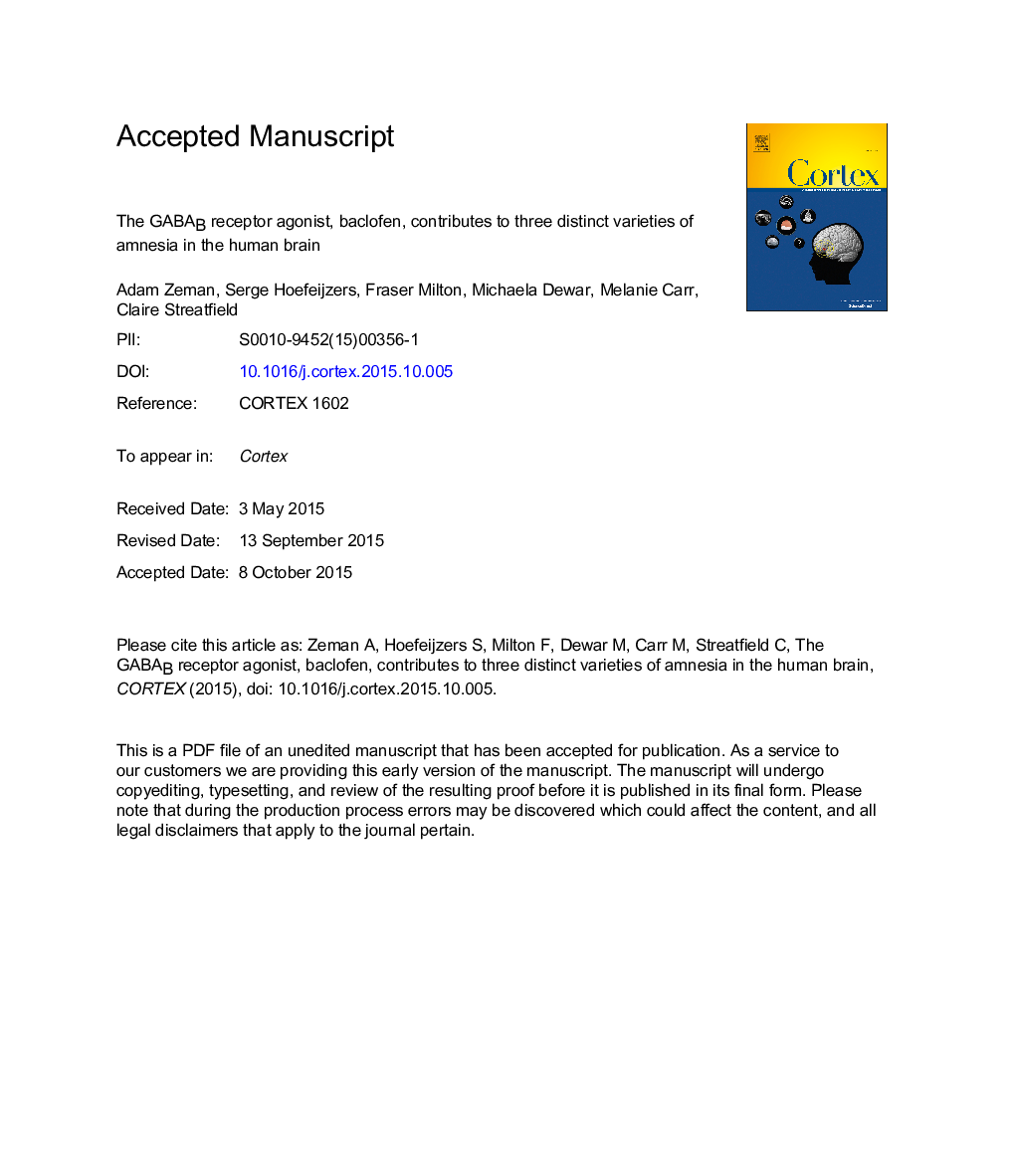| Article ID | Journal | Published Year | Pages | File Type |
|---|---|---|---|---|
| 7313450 | Cortex | 2016 | 37 Pages |
Abstract
We describe a patient in whom long-term, therapeutic infusion of the selective gamma-amino-butyric acid type B (GABAB) receptor agonist, baclofen, into the cerebrospinal fluid (CSF) gave rise to three distinct varieties of memory impairment: i) repeated, short periods of severe global amnesia, ii) accelerated long-term forgetting (ALF), evident over intervals of days and iii) a loss of established autobiographical memories. This pattern of impairment has been reported in patients with temporal lobe epilepsy (TLE), in particular the subtype of Transient Epileptic Amnesia (TEA). The amnesic episodes and accelerated forgetting remitted on withdrawal of baclofen, while the autobiographical amnesia (AbA) persisted. This exceptional case highlights the occurrence of 'non-standard' forms of human amnesia, reflecting the biological complexity of memory processes. It suggests a role for GABAB signalling in the modulation of human memory over multiple time-scales and hints at its involvement in 'epileptic amnesia'.
Keywords
Related Topics
Life Sciences
Neuroscience
Behavioral Neuroscience
Authors
Adam Zeman, Serge Hoefeijzers, Fraser Milton, Michaela Dewar, Melanie Carr, Claire Streatfield,
